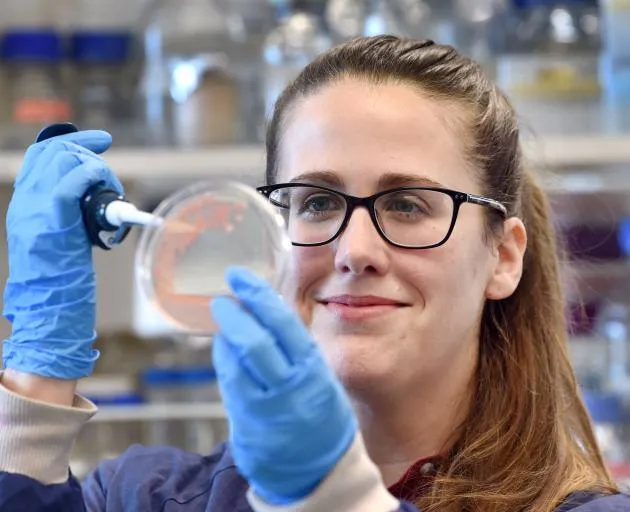As the world grapples with the growing threat of antibiotic-resistant “superbugs,” researchers are turning to an unconventional approach: harnessing the power of viruses known as phages. Otago University research fellow Dr. Leah Smith has been awarded a prestigious fellowship to study phage therapy and its potential to combat this crisis.
Phages, which only infect bacteria, offer a promising alternative to traditional antibiotics. “So-called superbugs” refer to bacteria that are resistant to multiple antibiotics, making it increasingly difficult to treat infections. Phage therapy, however, can provide a targeted solution, using these viruses to kill bacteria when other options fail.
The potential of phages is vast. With an estimated 10-to-1 ratio between the number of phages and bacteria on the planet, scientists believe they could offer a game-changing approach to combating antibiotic resistance. Phage therapy has been practiced in some parts of the world, but its regulation and accessibility vary widely.
Dr. Smith’s research aims to uncover the characteristics that make phages effective against a range of bacteria across different environments. By identifying these traits, she hopes to develop more targeted and effective therapies.
The study will focus on the genetics behind phage-bacterial interactions, which could inform the design of future therapies. This knowledge could be used to create phages specifically tailored to address specific diseases or infections, opening up new avenues for treatment in both human health and agriculture.
One day, phage therapy may become a standard tool in clinical practice, providing a safe and effective alternative to traditional antibiotics. With the help of her fellowship, Dr. Smith is well on her way to unlocking this potential.
Benefits of Phage Therapy:
• Targeted approach: Phages only infect bacteria, reducing the risk of harming beneficial microorganisms.
• Broad spectrum: Phages have been shown to be effective against a range of bacterial species, including those resistant to antibiotics.
• Environmentally friendly: Phages are naturally occurring and can be produced using environmentally friendly methods.
Challenges and Opportunities
While phage therapy holds great promise, there are challenges to overcome before it becomes widely available. These include:
• Regulation: Phage therapy is highly regulated in many countries, with strict guidelines governing its use.
• Safety: As with any new therapy, ensuring the safety of phages for human use is a top priority.
Dr. Smith’s research and fellowship offer an exciting opportunity to address these challenges and unlock the full potential of phage therapy.
Meet Dr. Leah Smith
Dr. Leah Smith is a research fellow at Otago University, where she is leading the charge in researching phage therapy. With her recent award, she has become one of the most prominent voices in this emerging field. When asked about her research, Dr. Smith was effusive: “I’m thrilled to have the opportunity to explore this exciting area of research. The potential for phage therapy to combat antibiotic resistance is vast, and I’m eager to contribute to this effort.”
Career Highlights
• Awarded 2024 L’Oreal-Unesco For Woman in Science Fellowship
• Research fellow at Otago University
• Published in leading scientific journals on phage therapy and antimicrobial solutions
Future Directions
As the field of phage therapy continues to evolve, we can expect to see new breakthroughs and applications emerge. Some potential future directions include:
• Clinical trials: Phage therapy is poised for its first human clinical trials, promising to bring this innovative approach closer to mainstream use.
• Agricultural applications: Phages could play a key role in controlling plant diseases, reducing the need for chemical pesticides.
• Personalized medicine: The development of phage therapies tailored to individual patients could revolutionize the treatment of infectious diseases.
Conclusion
The threat of antibiotic-resistant “superbugs” is real, and the world needs innovative solutions. Harnessing the power of phages offers a promising approach to combating this crisis. With Dr. Leah Smith leading the charge, we can look forward to exciting breakthroughs in the field of phage therapy and its potential applications.
Dr. Smith’s research and fellowship are a testament to the impact that dedicated scientists can have on our world. As we move forward, it will be crucial to support these individuals and their work, ensuring that the next generation of medical breakthroughs comes from within.

0 Comments